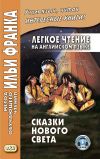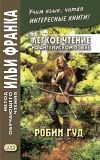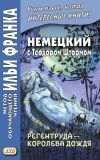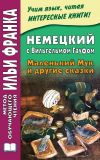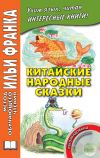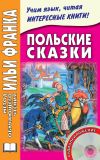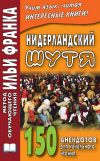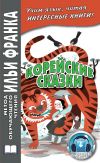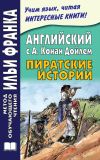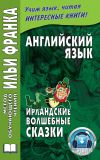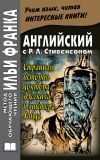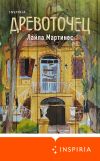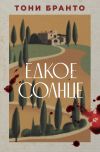Текст книги "Английский с Шерлоком Холмсом. Человек с рассеченной губой / Arthur Conan Doyle. Sherlock Holmes"
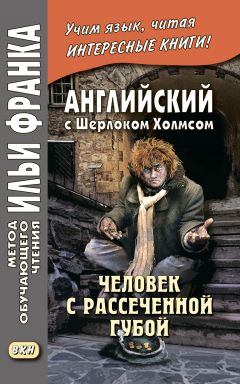
Автор книги: Артур Дойл
Жанр: Иностранные языки, Наука и Образование
Возрастные ограничения: +16
сообщить о неприемлемом содержимом
Текущая страница: 7 (всего у книги 21 страниц)
museum [mju:'zɪǝm], leisure ['leʒǝ], science ['saɪǝns], aroused [ǝ'raʋzd]
“When I first came up to London I had rooms in Montague Street, just round the corner from the British Museum, and there I waited, filling in my too abundant leisure time by studying all those branches of science which might make me more efficient. Now and again cases came in my way, principally through the introduction of old fellow-students, for during my last years at the University there was a good deal of talk there about myself and my methods. The third of these cases was that of the Musgrave Ritual, and it is to the interest which was aroused by that singular chain of events, and the large issues which proved to be at stake, that I trace my first stride towards to position which I now hold.
“Reginald Musgrave had been in the same college as myself (Реджинальд Месгрейв учился в том же колледже, что и я), and I had some slight acquaintance with him (и мы с ним были немного знакомы; slight – слабый, легкий, незначительный). He was not generally popular among the undergraduates (он не был особенно популярен среди студентов), though it always seemed to me that what was set down as pride (хотя мне всегда казалось, что то, что считали /его/ надменностью; pride – гордость, заносчивость; гордыня; to set down – класть, ставить /на землю, на стол и т. п./; устанавливать, вырабатывать, фиксировать /правила, соглашение и т. п./; считать /кого-либо кем-либо – smb. for smb./) was really an attempt to cover extreme natural diffidence (на самом деле было попыткой прикрыть крайнюю врожденную застенчивость; diffidence – робость, скромность, неуверенность в себе; уст. недоверие; подозрительность). In appearance he was a man of exceedingly aristocratic type (по наружности это был человек чрезвычайно аристократического типа), thin (худой), high-nosed (с благородным носом), and large-eyed (с большими глазами), with languid and yet courtly manners (с вялыми, но утонченными манерами). He was indeed a scion of one of the very oldest families in the kingdom (он и в самом деле был отпрыском одного из древнейших родов в королевстве; scion – отпрыск, потомок; наследник), though his branch was a cadet one (хотя его ветвь и была младшей; cadet – кадет; младшая линия /в генеалогии/; представитель младшей линии) which had separated from the northern Musgraves some time in the sixteenth century (которая отделилась от северных Месгрейвов в шестнадцатом веке; sometime – когда-то, как-то), and had established itself in western Sussex (и обосновалась в западном Суссексе), where the Manor House of Hurlstone is perhaps the oldest inhabited building in the county (где замок Херлстон, вероятно, является самым старинным обитаемым зданием графства; manor-house – помещичий, барский дом; замок /феодала/).
acquaintance [ǝ'kweɪntǝns], extreme [ɪk'stri:m], courtly ['kɔ:tlɪ], scion ['saɪǝn], inhabited [ɪn'hæbɪtɪd]
“Reginald Musgrave had been in the same college as myself, and I had some slight acquaintance with him. He was not generally popular among the undergraduates, though it always seemed to me that what was set down as pride was really an attempt to cover extreme natural diffidence. In appearance he was a man of exceedingly aristocratic type, thin, high-nosed, and large-eyed, with languid and yet courtly manners. He was indeed a scion of one of the very oldest families in the kingdom, though his branch was a cadet one which had separated from the northern Musgraves some time in the sixteenth century, and had established itself in western Sussex, where the Manor House of Hurlstone is perhaps the oldest inhabited building in the county.
“Something of his birth place seemed to cling to the man (казалось, что-то = какой-то отпечаток от места рождения остался на /внешности/ этого человека; to cling to – прилипать; цепляться; держаться; оставаться верным /друзьям, дому, воспоминаниям/), and I never looked at his pale, keen face or the poise of his head (и я никогда не смотрел на его бледное, с острыми чертами лицо и манеру держать голову) without associating him with gray archways (чтобы не ассоциировать его с серыми сводами; archway – проход под аркой, сводчатый проход) and mullioned windows (и многостворчатыми окнами; mullion – средник /средний вертикальный брусок оконной рамы или двери/) and all the venerable wreckage of a feudal keep (и всеми этими = и тому подобными древними, благородными остатками феодального замка; venerable – почтенный, достойный почитания; древний; keep – центральная, хорошо укрепленная часть или башня средневекового замка). Once or twice we drifted into talk (несколько раз нам случалось беседовать: «впадали в беседу»; to drift – относить, гнать /ветром, течением/; переходить /из одного состояния в другое/: to drift into sleep – погрузиться в сон), and I can remember that more than once he expressed a keen interest in my methods of observation and inference (и я помню, что он неоднократно проявлял живой интерес к моим методам наблюдения и выводов/умозаключений).
“For four years I had seen nothing of him (четыре года я его не видел) until one morning he walked into my room in Montague Street (пока однажды утром он не вошел в мою комнату на Монтегю-Стрит). He had changed little (он мало изменился), was dressed like a young man of fashion (был одет как модный молодой человек; man of fashion – светский человек; человек, во всем следующий моде) – he was always a bit of a dandy (он всегда был немного франтом; dandy – денди, щеголь, франт) – and preserved the same quiet, suave manner (и сохранил те же спокойные, обходительные манеры) which had formerly distinguished him (которые прежде отличали его).
“'How has all gone with you, Musgrave (как поживаете/как ваши дела, Месгрейв)?” I asked, after we had cordially shaken hands (спросил я после того, как мы сердечно пожали руки; cordially – сердечно, радушно).
venerable ['ven(ǝ)rǝbl], feudal ['fju:dl], suave [swɑ:v]
“Something of his birth place seemed to cling to the man, and I never looked at his pale, keen face or the poise of his head without associating him with gray archways and mullioned windows and all the venerable wreckage of a feudal keep. Once or twice we drifted into talk, and I can remember that more than once he expressed a keen interest in my methods of observation and inference.
“For four years I had seen nothing of him until one morning he walked into my room in Montague Street. He had changed little, was dressed like a young man of fashion – he was always a bit of a dandy – and preserved the same quiet, suave manner which had formerly distinguished him.
“'How has all gone with you, Musgrave?” I asked, after we had cordially shaken hands.
“'You probably heard of my poor father's death (вероятно, вы слышали о смерти моего бедного отца),' said he; 'he was carried off about two years ago (это случилось около двух лет назад; to carry off – унести чью-либо жизнь, свести в могилу). Since then I have of course had the Hurlstone estates to manage (с тех пор мне, разумеется, пришлось взять на себя управление Херлстонским поместьем; estate – поместье; земельное владение; имущество; to manage – управлять; заведовать, стоять во главе), and as I am member for my district as well (а поскольку я также являюсь депутатом от своего округа; member – член; депутат), my life has been a busy one (моя жизнь была очень занятой). But I understand, Holmes, that you are turning to practical ends those powers (но /насколько/ я понимаю, Холмс, вы применяете на практике: «обращаете на практические цели» те способности) with which you used to amaze us (которыми так удивляли нас)?'
“'Yes,' said I, 'I have taken to living by my wits (да, я решил зарабатывать на жизнь собственным умом; to take to – обращаться, прибегать к /чему-либо/; начинать заниматься /чем-либо/: to take to literature – заняться литературой, стать писателем; to live by one's wits – кое-как выкручиваться, изворачиваться /чтобы раздобыть средства к существованию/).'
“'I am delighted to hear it (рад это слышать), for your advice at present would be exceedingly valuable to me (поскольку ваш совет в настоящее время был бы чрезвычайно ценным для меня). We have had some very strange doings at Hurlstone (у нас в Херлстоне произошли очень странные вещи), and the police have been able to throw no light upon the matter (и полиция не сумела пролить хоть какой-то свет на это дело). It is really the most extraordinary and inexplicable business (это действительно крайне необычная, необъяснимая история; to explicate – объяснять, развивать /идею/).'
“You can imagine with what eagerness I listened to him, Watson (можете себе представить, с каким интересом я слушал его, Ватсон; eagerness – пыл, рвение, старание; eager – страстно желающий, жаждущий), for the very chance (ведь тот самый шанс) for which I had been panting during all those months of inaction (которого я так нетерпеливо ждал в течение всех этих месяцев бездеятельности; to pant – пыхтеть, тяжело дышать; to pant for smth. – страстно желать чего-либо) seemed to have come within my reach (казалось, был передо мной: «в пределах моей досягаемости»). In my inmost heart I believed (в глубине души я полагал; inmost – находящийся в самой глубине; глубочайший, сокровенный) that I could succeed where others failed (что могу добиться успеха /там/, где другие потерпели неудачу), and now I had the opportunity to test myself (и теперь у меня была возможность испытать себя).
estate [ɪ'steɪt], inexplicable [,ɪnɪk'splɪkǝbl], opportunity [,ɒpǝ'tju:nǝtɪ]
“'You probably heard of my poor father's death,' said he; 'he was carried off about two years ago. Since then I have of course had the Hurlstone estates to manage, and as I am member for my district as well, my life has been a busy one. But I understand, Holmes, that you are turning to practical ends those powers with which you used to amaze us?'
“'Yes,' said I, 'I have taken to living by my wits.'
“'I am delighted to hear it, for your advice at present would be exceedingly valuable to me. We have had some very strange doings at Hurlstone, and the police have been able to throw no light upon the matter. It is really the most extraordinary and inexplicable business.'
“You can imagine with what eagerness I listened to him, Watson, for the very chance for which I had been panting during all those months of inaction seemed to have come within my reach. In my inmost heart I believed that I could succeed where others failed, and now I had the opportunity to test myself.
“'Pray, let me have the details (прошу вас, расскажите мне все подробности),' I cried (вскричал я).
“Reginald Musgrave sat down opposite to me (Реджинальд Месгрейв сел напротив меня), and lit the cigarette which I had pushed towards him (и закурил сигарету, которую я пододвинул к нему; to light – зажигать; закуривать).
“'You must know (вы должны знать),' said he, 'that though I am a bachelor (что хотя я и холостяк), I have to keep up a considerable staff of servants at Hurlstone (мне приходится держать значительный штат прислуги в Херлстоне), for it is a rambling old place (поскольку это старая, беспорядочно построенная усадьба; rambling – бродячий; разбросанный /о строениях/; беспорядочный; to ramble – бродить без цели; говорить бессвязно; place – место; имение, загородный дом), and takes a good deal of looking after (и требует постоянного присмотра; to look after – заботиться, присматривать; a good deal = a great deal – много, множество; сильно). I preserve, too, and in the pheasant months I usually have a house-party (я слежу за ней, а в сезон охоты на фазанов: «в фазаньи месяцы» обычно принимаю гостей; to preserve – сохранять, оберегать; поддерживать; house party – гости, приглашенные на несколько дней /особенно в загородный дом/), so that it would not do to be short-handed (так что нельзя быть без прислуги; short-handed – испытывающий недостаток в рабочей силе; short – короткий, неполный; испытывающий нехватку; hand – рука; рабочий, работник: hands wanted! – требуется рабочая сила!). Altogether there are eight maids (всего там восемь горничных), the cook (повар; to cook – готовить), the butler (дворецкий), two footmen (два лакея), and a boy (рассыльный). The garden and the stables of course have a separate staff (в саду и конюшнях имеется, конечно, отдельный штат /прислуги/).
cigarette [,sɪɡǝ'ret], bachelor ['bæʧ(ǝ)lǝ], pheasant ['fez(ǝ)nt], garden ['ɡɑ:d(ǝ)n]
“'Pray, let me have the details,' I cried.
“Reginald Musgrave sat down opposite to me, and lit the cigarette which I had pushed towards him.
“'You must know,' said he, 'that though I am a bachelor, I have to keep up a considerable staff of servants at Hurlstone, for it is a rambling old place, and takes a good deal of looking after. I preserve, too, and in the pheasant months I usually have a house-party, so that it would not do to be short-handed. Altogether there are eight maids, the cook, the butler, two footmen, and a boy. The garden and the stables of course have a separate staff.
“'Of these servants the one (из этих слуг один) who had been longest in our service was Brunton the butler (прослужил у нас дольше всех – Брантон, дворецкий; service – служба, работа). He was a young schoolmaster out of place (он был молодым школьным учителем без места; out of place – неподходящий, не к месту; безработный) when he was first taken up by my father (когда отец только взял его на службу; to take up – поднимать; принимать, занимать), but he was a man of great energy and character (но это был человек очень энергичный и с сильным характером), and he soon became quite invaluable in the household (и скоро он стал просто незаменим в нашем доме; invaluable – неоценимый, бесценный; value – ценность, важность; household – семейство; дом, /домашнее/ хозяйство). He was a well-grown (это был рослый), handsome man (красивый мужчина), with a splendid forehead (с великолепным лбом), and though he has been with us for twenty years (и хотя он /прожил/ с нами двадцать лет) he cannot be more than forty now (ему и сейчас не /может быть/ больше сорока).
“'With his personal advantages and his extraordinary gifts (при своих личных преимуществах = качествах и необычайных способностях; gift – дар, дарование; талант; способность) – for he can speak several languages (ибо он может говорить на нескольких языках) and play nearly every musical instrument (и играть чуть ли не на всех музыкальных инструментах) – it is wonderful that he should have been satisfied so long in such a position (удивительно, что он так долго был удовлетворен своим положением), but I suppose that he was comfortable (но, полагаю, ему этого было достаточно/жилось хорошо; comfortable – удобный; довольный; достаточный, приличный, хороший /о заработке/), and lacked energy to make any change (и недоставало энергии, чтобы сделать какую-либо перемену = он не стремился ничего менять). The butler of Hurlstone is always a thing (дворецкий Херлстона всегда был тем) that is remembered by all who visit us (что запоминается всем, кто посещает нас = все наши гости обращали внимание на него).
schoolmaster ['sku:l,mɑ:stǝ], forehead ['fɔ:hed; 'fɒrɪd], musical ['mju:zɪk(ǝ)l]
“'Of these servants the one who had been longest in our service was Brunton the butler. He was a young schoolmaster out of place when he was first taken up by my father, but he was a man of great energy and character, and he soon became quite invaluable in the household. He was a well-grown, handsome man, with a splendid forehead, and though he has been with us for twenty years he cannot be more than forty now.
“'With his personal advantages and his extraordinary gifts – for he can speak several languages and play nearly every musical instrument – it is wonderful that he should have been satisfied so long in such a position, but I suppose that he was comfortable, and lacked energy to make any change. The butler of Hurlstone is always a thing that is remembered by all who visit us.
“'But this paragon has one fault (но у этого совершенства есть один недостаток; paragon – образец, модель совершенства). He is a bit of a Don Juan (он немного донжуан), and you can imagine that for a man like him (и вы можете себе представить, что для такого человека, как он) it is not a very difficult part to play in a quiet country district (не очень трудно играть эту роль в тихой сельской местности; country – страна; сельская местность; district – округ, район; местность). When he was married it was all right (пока он был женат, все шло хорошо), but since he has been a widower (но с тех пор, как он стал вдовцом) we have had no end of trouble with him (у нас с ним масса хлопот/неприятностей; no end of – бесконечно много; масса, множество). A few months ago we were in hopes (несколько месяцев назад мы стали надеяться) that he was about to settle down again (что он снова остепенится; to be about to do something – намереваться сделать что-либо; to settle down – осесть, поселиться; остепениться) for he became engaged to Rachel Howells (так как он обручился с Рейчел Хауэллс), our second house-maid (нашей младшей горничной; second – второй; второстепенный, подчиненный); but he has thrown her over since then (однако затем он бросил ее; to throw over) and taken up with Janet Tregellis (и увлекся Дженет Треджелис; to take up with – встречаться, увлечься), the daughter of the head game-keeper (дочерью главного егеря: «хранителя дичи»). Rachel – who is a very good girl (Рейчел – прекрасная девушка), but of an excitable Welsh temperament (но легковозбудимого/горячего уэльского нрава) – had a sharp touch of brain-fever (перенесла острый приступ воспаления мозга), and goes about the house now (и она теперь ходит по дому) – or did until yesterday (вернее, ходила до вчерашнего дня) – like a black-eyed shadow of her former self (как тень; от ее прежнего облика остались одни черные глаза; shadow – тень, призрак, привидение; self – свое «я»; сущность, облик: one's former self – то, чем человек был раньше).
paragon ['pærǝɡǝn], country ['kʌntrɪ], daughter ['dɔ:tǝ], fever ['fi:vǝ]
“'But this paragon has one fault. He is a bit of a Don Juan, and you can imagine that for a man like him it is not a very difficult part to play in a quiet country district. When he was married it was all right, but since he has been a widower we have had no end of trouble with him. A few months ago we were in hopes that he was about to settle down again for he became engaged to Rachel Howells, our second house-maid; but he has thrown her over since then and taken up with Janet Tregellis, the daughter of the head game-keeper. Rachel – who is a very good girl, but of an excitable Welsh temperament – had a sharp touch of brain-fever, and goes about the house now – or did until yesterday – like a black-eyed shadow of her former self.
“'That was our first drama at Hurlstone (такова была наша первая драма в Херлстоне); but a second one came to drive it from our minds (но вторая стерла ее из нашей памяти; to drive – гнать, прогонять), and it was prefaced by the disgrace and dismissal of butler Brunton (и ей предшествовали позор и увольнение дворецкого Брантона; preface – предисловие; вступление; пролог).
“'This was how it came about (вот как это произошло). I have said that the man was intelligent (я уже говорил, что этот человек очень умен), and this very intelligence has caused his ruin (и именно его ум стал причиной его гибели), for it seems to have led to an insatiable curiosity about things (так как, видимо, вызвал жадное любопытство к вещам; insatiable – ненасытный, жадный; неутолимый) which did not in the least concern him (которые не имели к нему ни малейшего отношения). I had no idea of the lengths to which this would carry him (я и понятия не имел о том, как далеко это могло завести его; length – длина, расстояние), until the merest accident opened my eyes to it (пока чистый случай не открыл мне глаза /на это/).
“'I have said that the house is a rambling one (я говорил, что дом построен бестолково). One day last week (в один день на прошлой неделе) – on Thursday night, to be more exact (точнее, в четверг ночью) – I found that I could not sleep (я понял, что не могу уснуть), having foolishly taken a cup of strong café noir after my dinner (потому что по глупости выпил чашку крепкого черного кофе /франц./ после ужина). After struggling against it until two in the morning (промучившись: «проборовшись против него» до двух часов ночи: «утра»; to struggle – бороться), I felt that it was quite hopeless (я почувствовал, что это безнадежно), so I rose and lit the candle (и потому поднялся и зажег свечу) with the intention of continuing a novel which I was reading (с намерением продолжить роман, который я читал = намереваясь продолжить чтение романа). The book, however, had been left in the billiard-room (однако я забыл книгу в бильярдной), so I pulled on my dressing-gown and started off to get it (поэтому я надел халат и отправился за ней; to pull on – натягивать).
prefaced ['prefɪst], insatiable [ɪn'seɪʃǝbl], gown [ɡaun]
“'That was our first drama at Hurlstone; but a second one came to drive it from our minds, and it was prefaced by the disgrace and dismissal of butler Brunton.
“'This was how it came about. I have said that the man was intelligent, and this very intelligence has caused his ruin, for it seems to have led to an insatiable curiosity about things which did not in the least concern him. I had no idea of the lengths to which this would carry him, until the merest accident opened my eyes to it.
“'I have said that the house is a rambling one. One day last week – on Thursday night, to be more exact – I found that I could not sleep, having foolishly taken a cup of strong café noir after my dinner. After struggling against it until two in the morning, I felt that it was quite hopeless, so I rose and lit the candle with the intention of continuing a novel which I was reading. The book, however, had been left in the billiard-room, so I pulled on my dressing-gown and started off to get it.
“'In order to reach the billiard-room (чтобы добраться до бильярдной) I had to descend a flight of stairs (мне нужно было спуститься на один лестничный пролет) and then to cross the head of a passage (и затем пересечь переднюю часть коридора; passage – коридор; проход; переход) which led to the library and the gun-room (ведущего в библиотеку и в комнату для ружей; gun-room – комната для хранения охотничьих ружей). You can imagine my surprise (можете представить мое изумление) when, as I looked down this corridor (когда, заглянув в коридор), I saw a glimmer of light coming from the open door of the library (я увидел тусклый свет, исходивший из открытой двери библиотеки). I had myself extinguished the lamp (я сам погасил лампу) and closed the door before coming to bed (и закрыл дверь, прежде чем отправиться спать). Naturally my first thought was of burglars (разумеется, первой моей мыслью была /мысль/ о грабителях; burglar – ночной грабитель, взломщик). The corridors at Hurlstone have their walls largely decorated with trophies of old weapons (стены коридоров в Херлстоне щедро украшены трофейным старинным оружием; largely – в значительной степени, щедро, обильно). From one of these I picked a battle-axe (с одной из них я схватил боевой топор), and then, leaving my candle behind me (и, оставив свечу), I crept on tiptoe down the passage (я прокрался на цыпочках по коридору; to creep – ползать; красться) and peeped in at the open door (и заглянул в открытую дверь).
“'Brunton, the butler, was in the library (Брантон, дворецкий, был в библиотеке). He was sitting, fully dressed, in an easy-chair (он сидел, совершенно одетый, в мягком кресле), with a slip of paper which looked like a map upon his knee (с листом бумаги на колене, похожим на какую-то карту), and his forehead sunk forward upon his hand in deep thought (лоб он опер: «опустил» на руку в глубокой задумчивости). I stood dumb with astonishment (я стоял, онемев от изумления; dumb – немой; онемевший /от внезапных чувств/), watching him from the darkness (и наблюдал за ним из темноты).
library ['laɪbr(ǝ)rɪ], extinguished [ɪk'stɪŋɡwɪʃt], burglar ['bɜ:ɡlǝ], weapon ['wepǝn]
“'In order to reach the billiard-room I had to descend a flight of stairs and then to cross the head of a passage which led to the library and the gun‑room. You can imagine my surprise when, as I looked down this corridor, I saw a glimmer of light coming from the open door of the library. I had myself extinguished the lamp and closed the door before coming to bed. Naturally my first thought was of burglars. The corridors at Hurlstone have their walls largely decorated with trophies of old weapons. From one of these I picked a battle-axe, and then, leaving my candle behind me, I crept on tiptoe down the passage and peeped in at the open door.
“'Brunton, the butler, was in the library. He was sitting, fully dressed, in an easy-chair, with a slip of paper which looked like a map upon his knee, and his forehead sunk forward upon his hand in deep thought. I stood dumb with astonishment, watching him from the darkness.
“'A small taper on the edge of the table shed a feeble light (маленькая свечка на краю стола отбрасывала слабый свет; taper – конус; тонкая свечка) which sufficed to show me that he was fully dressed (которого было достаточно, чтобы показать мне, что дворецкий совершенно одет). Suddenly, as I looked, he rose from his chair (вдруг, в то время как я продолжал смотреть, он встал с кресла), and walking over to a bureau at the side (и, подойдя к бюро в стороне), he unlocked it and drew out one of the drawers (отпер его и выдвинул один из ящиков). From this he took a paper (из него он вытащил какую-то бумагу), and returning to his seat (и, вернувшись на место) he flattened it out beside the taper on the edge of the table (он разгладил ее возле свечи на углу стола), and began to study it with minute attention (и стал рассматривать ее очень внимательно; minute – мелкий; детальный, обстоятельный). My indignation at this calm examination of our family documents overcame me so far (ярость из-за этого спокойного изучения наших фамильных документов настолько: «так далеко» переполнила меня; indignation – негодование, возмущение; to overcome – побороть, преодолеть; охватить, обуять; переполнять /о чувстве, эмоции/) that I took a step forward (что я шагнул вперед), and Brunton, looking up, saw me standing in the doorway (и Брантон, подняв глаза, увидел, что я стою в дверях). He sprang to his feet (он вскочил на ноги), his face turned livid with fear (его лицо побледнело от страха; livid – синевато-багровый; мертвенно-бледный), and he thrust into his breast the chart-like paper (и он сунул в нагрудный /карман/ похожий на карту /лист/ бумаги) which he had been originally studying (который он только что изучал; originally – в начале, первоначально).
“'So (так)!' said I. “This is how you repay the trust (вот как вы отплачиваете за доверие) which we have reposed in you (оказанное вам; to repose – наделять /кого-либо чем-либо/, возлагать /что-либо на кого-либо/; вручать полномочия /кому-либо/). You will leave my service tomorrow (завтра же вы уйдете со службы: «оставите мою службу»).”
sufficed [sǝ'faɪst], bureau ['bjʋ(ǝ)rǝʋ], originally [ǝ'rɪʤ(ǝ)n(ǝ)lɪ]
“'A small taper on the edge of the table shed a feeble light which sufficed to show me that he was fully dressed. Suddenly, as I looked, he rose from his chair, and walking over to a bureau at the side, he unlocked it and drew out one of the drawers. From this he took a paper, and returning to his seat he flattened it out beside the taper on the edge of the table, and began to study it with minute attention. My indignation at this calm examination of our family documents overcame me so far that I took a step forward, and Brunton, looking up, saw me standing in the doorway. He sprang to his feet, his face turned livid with fear, and he thrust into his breast the chart-like paper which he had been originally studying.
“'So!' said I. “This is how you repay the trust which we have reposed in you. You will leave my service tomorrow.”
“'He bowed with the look of a man who is utterly crushed (он поклонился с видом человека, который совершенно подавлен), and slunk past me without a word (и проскользнул мимо меня без единого слова; to slink – красться). The taper was still on the table (свеча по-прежнему стояла на столе; taper – свечка /тонкая/), and by its light I glanced to see (и при ее свете я посмотрел) what the paper was which Brunton had taken from the bureau (что это за бумага, которую Брантон достал из бюро). To my surprise it was nothing of any importance at all (к моему удивлению, она не представляла никакой ценности), but simply a copy of the questions and answers (а была копией вопросов и ответов) in the singular old observance called the Musgrave Ritual (/произносимых/ при необычном старинном обряде, называемом «Обряд дома Месгрейвов»; observance – соблюдение /закона, обычая, религиозного обряда, праздника/; обряд, ритуал, церемония). It is a sort of ceremony peculiar to our family (это своего рода ритуал, характерный для нашего рода), which each Musgrave for centuries past (который каждый Месгрейв уже несколько веков) has gone through on his coming of age (проходит при достижении совершеннолетия) – a thing of private interest (он представляет частный интерес = интерес для членов нашей семьи), and perhaps of some little importance to the archaeologist (и, возможно, имеет небольшое значение для археолога), like our own blazonings and charges (как /вообще/ наша геральдика; blazon – герб, эмблема; описание герба; charge – девиз, символ, фигура /на щите/), but of no practical use whatever (но никакого практического применения не имеет).'
“'We had better come back to the paper afterwards (лучше вернуться к этой бумаге позже),' said I.
observance [ǝb'zɜ:v(ǝ)ns], ceremony ['serɪmǝnɪ], archaeologist [,ɑ:kɪ'ɒlǝʤɪst]
“'He bowed with the look of a man who is utterly crushed, and slunk past me without a word. The taper was still on the table, and by its light I glanced to see what the paper was which Brunton had taken from the bureau. To my surprise it was nothing of any importance at all, but simply a copy of the questions and answers in the singular old observance called the Musgrave Ritual. It is a sort of ceremony peculiar to our family, which each Musgrave for centuries past has gone through on his coming of age – a thing of private interest, and perhaps of some little importance to the archaeologist, like our own blazonings and charges, but of no practical use whatever.'
“'We had better come back to the paper afterwards,' said I.
“'If you think it really necessary (если вы считаете, что это действительно необходимо),' he answered, with some hesitation (ответил он с некоторым колебанием).
Правообладателям!
Это произведение, предположительно, находится в статусе 'public domain'. Если это не так и размещение материала нарушает чьи-либо права, то сообщите нам об этом.